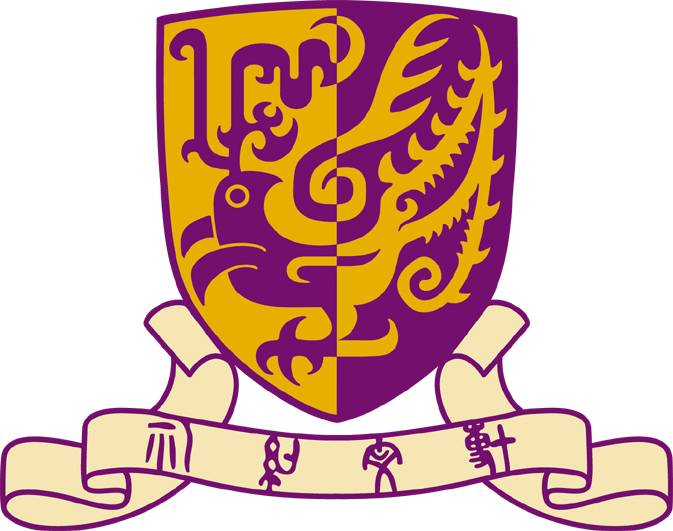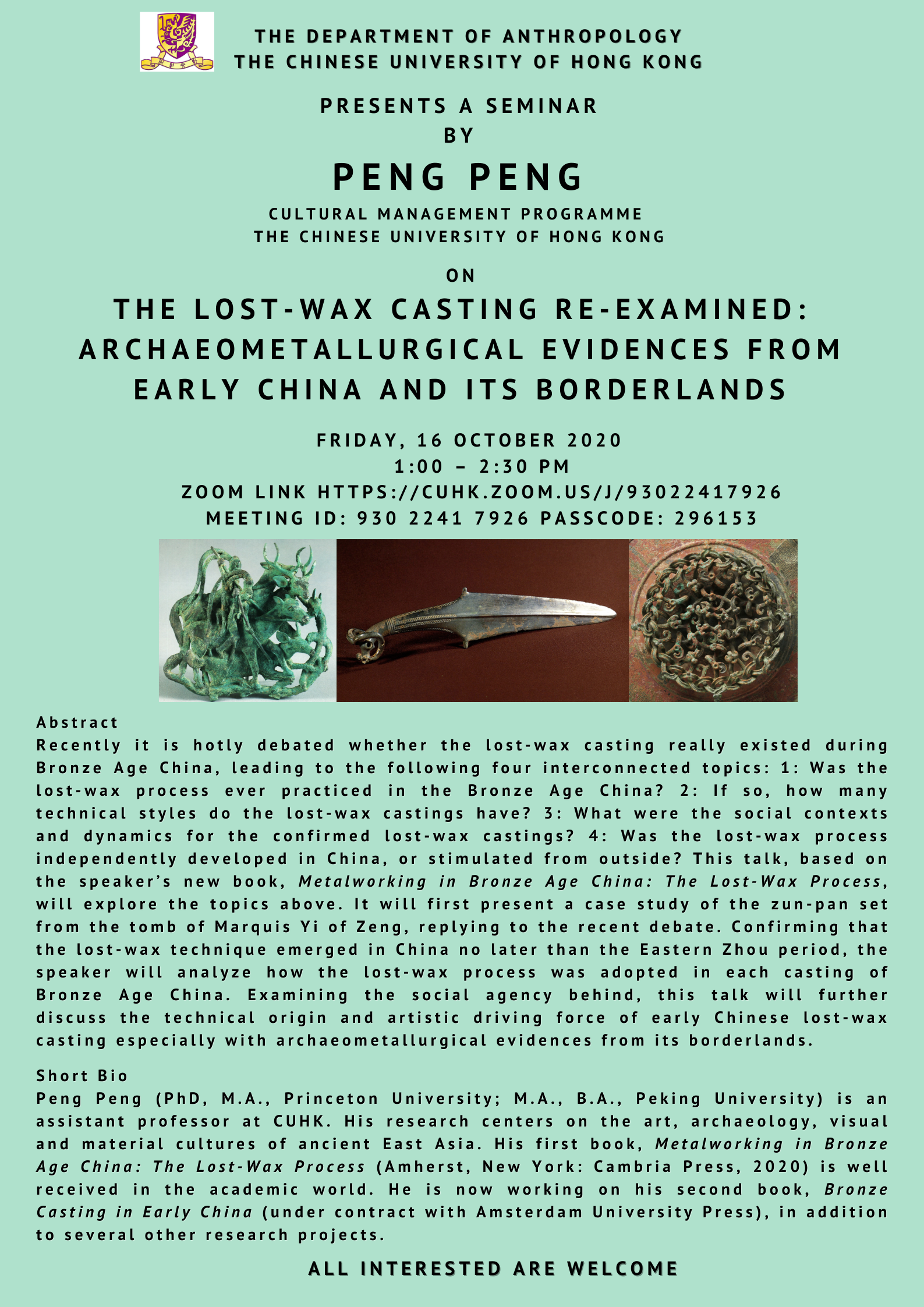Title: The Lost-wax Casting Re-examined: Archaeometallurgical Evidences from Early China and Its Borderlands
Speaker: Peng Peng (Cultural Management Programme, The Chinese University of Hong Kong)
Date: 16 October 2020
Time: 1:00-2:30 pm
Zoom Meeting Info
Link: https://cuhk.zoom.us/j/93022417926
Meeting ID: 930 2241 7926
Passcode: 296153
Abstract:
Recently it is hotly debated whether the lost-wax casting really existed during Bronze Age China, leading to the following four interconnected topics: 1: Was the lost-wax process ever practiced in the Bronze Age China? 2: If so, how many technical styles do the lost-wax castings have? 3: What were the social context and dynamics for the confirmed lost-wax castings? 4: Was the lost-wax process independently developed in China, or stimulated from outside? This talk, based on the speaker’s new book, Metalworking in Bronze Age China: The Lost-Wax Process, will explore the topics above. It will first present a case study of the zun-pan set from the tomb of Marquis Yi of Zeng, replying to the recent debate. Confirming that the lost-wax technique emerged in China no later than the Eastern Zhou period, the speaker will analyze how the lost-wax process was adopted in each casting of Bronze Age China. Examining the social agency behind, this talk will further discuss the technical origin and artistic driving force of early Chinese lost-wax casting especially with archaeometallurgical evidences from its borderlands.
Bio:
Peng Peng (PhD, M.A., Princeton University; M.A., B. A., Peking University) is an assistant professor at CUHK. His research centers on the art, archaeology, visual and material cultures of ancient East Asia. His first book, Metalworking in Bronze Age China: The Lost-Wax Process (Amherst, New York: Cambria Press, 2020) is well received in the academic world. He is now working on his second book, Bronze Casting in Early China (under contract with Amsterdam University Press), in addition to several other research projects.


